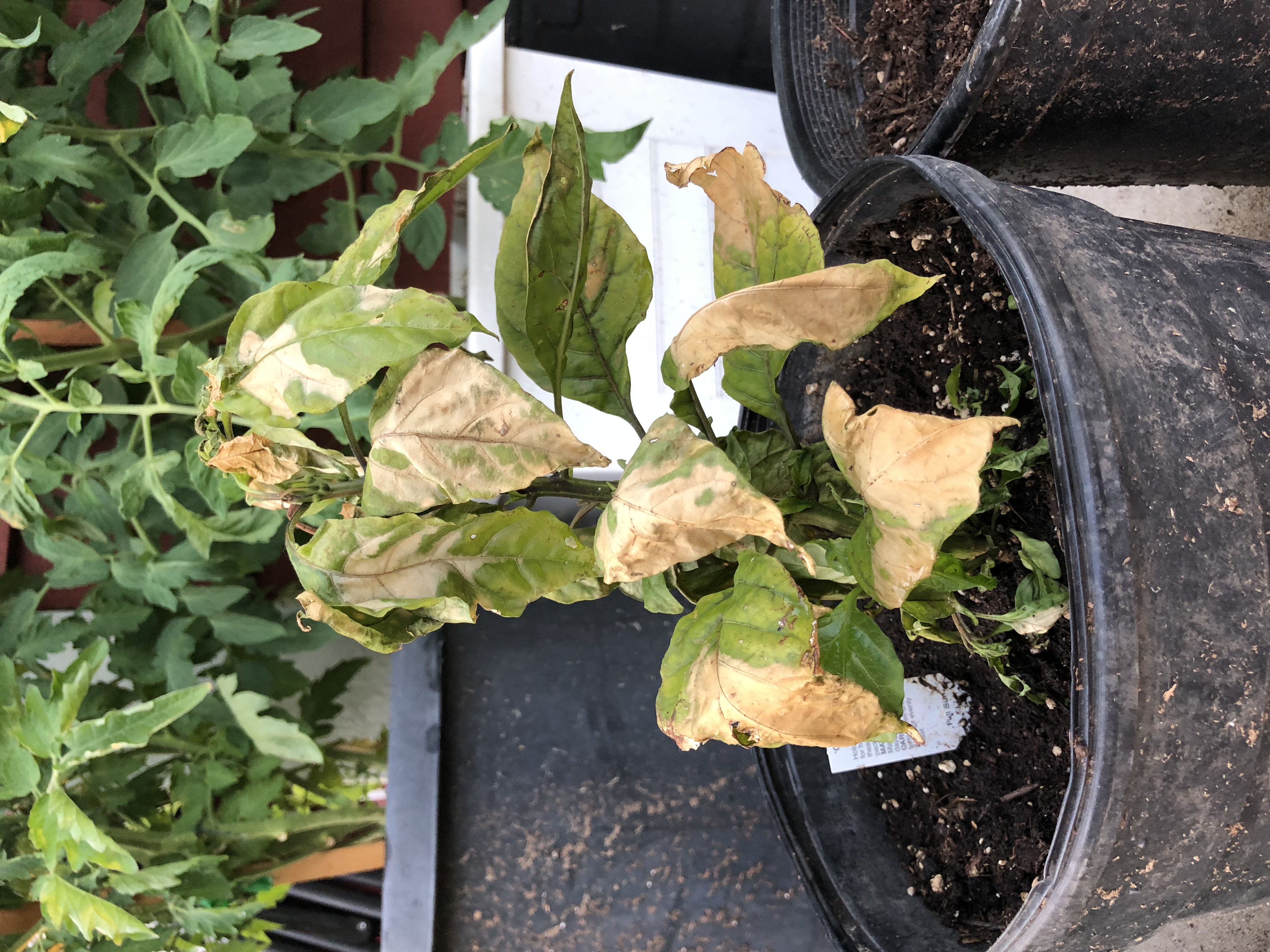Best Fertilizers for Peppers: Improve Growth and Flavor with Our Top Picks
Organic Vs. Synthetic Fertilizers: Which Is Best for Nurturing Healthy Pepper Plants?
In the realm of supporting healthy pepper plants, the option in between organic and synthetic fertilizers stands as a critical choice with far-ranging implications. While both choices objective to provide necessary nutrients to support plant growth, the subtleties of their influence on the soil, plant health and wellness, and the atmosphere trigger an argument that mirrors throughout the gardening community. Understanding the distinct benefits and potential risks of each fertilizer kind is important for pepper growers looking for to enhance their yields while preserving an eco-conscious and sustainable method.
Benefits of Organic Fertilizers
Organic fertilizers offer a sustainable and environmentally-friendly strategy to nourishing pepper plants, supplying essential nutrients without using synthetic chemicals. These all-natural fertilizers are originated from natural resources such as compost, manure, bone dish, and algae, advertising soil health and wellness and biodiversity. Unlike artificial fertilizers, organic alternatives launch nutrients slowly, making certain a consistent and balanced supply for pepper plants to grow.
One considerable benefit of organic plant foods is their ability to enhance soil framework and water retention. By enhancing dirt wellness, organic plant foods advertise useful microbial activity, which assists in nutrient uptake by pepper plants. In addition, natural plant foods reduce the threat of chemical run-off, securing water resources from air pollution and safeguarding the environment.
Moreover, natural fertilizers add to long-lasting dirt fertility by advertising the growth of useful soil organisms. These organisms assist damage down natural matter, launching nutrients in a type that is quickly available to pepper plants. best fertilizers for peppers. By promoting a healthy dirt community, organic plant foods sustain lasting pepper cultivation techniques that profit both plants and the environment
Downsides of Artificial Plant Foods
Synthetic plant foods, in comparison to their natural equivalents, pose different downsides when made use of to nourish pepper plants, influencing both plant wellness and environmental sustainability. One major downside of synthetic fertilizers is their tendency to seep nutrients from the soil promptly.
Additionally, the overuse of artificial plant foods can add to water pollution. Excess fertilizers not taken in by plants can remove into water bodies, resulting in eutrophication, where algae flowers deplete oxygen levels in the water, hurting water life. In addition, artificial plant foods are usually derived from non-renewable sources, such as fossil gas, adding to carbon exhausts and ecological deterioration throughout their manufacturing.
Nutrient Absorption Comparison
Effective nutrient absorption plays a crucial duty in the total health and wellness and growth of pepper plants. When contrasting organic and synthetic fertilizers in regards to nutrient absorption, natural plant foods have the advantage of supplying an extra well balanced and slow-release resource of nutrients (best fertilizers for peppers). Organic fertilizers include a variety of macro and micronutrients that are not just advantageous for the plants however additionally promote healthy and balanced soil microbial task, which aids in nutrient uptake. On the other hand, artificial plant foods frequently supply a fast release of nutrients, which can result in leaching and drainage, causing lower nutrient absorption prices by the plants.
Moreover, natural plant foods improve dirt framework and water retention capability, enabling pepper plants to gain access to nutrients more efficiently. This improved soil quality helps with root development, enabling better nutrient absorption. Synthetic plant foods, although originally increasing plant development because of their high nutrient concentrations, may hinder long-term nutrient absorption by derogatory dirt health and wellness gradually.
Environmental Impact Considerations

On the other hand, synthetic plant foods, although usually even more concentrated and instantly readily available to plants, can have destructive impacts on the environment otherwise applied effectively (best fertilizers for peppers). Their manufacturing requires high power inputs, causing greenhouse gas emissions and adding to climate adjustment. The drainage of excess synthetic plant foods can contaminate water sources, leading to eutrophication and damaging water ecological communities.
Ideal Fertilizer Practices for Peppers
When fertilizing pepper plants, maximizing nutrient uptake and look at this now decreasing environmental click here for more info effect are crucial factors to consider. To achieve this, it is vital to adhere to ideal plant food practices tailored to the particular requirements of pepper plants. One vital technique is to do a dirt examination prior to using any kind of plant foods. This examination can determine the pH degree of the dirt and recognize any kind of nutrient shortages, leading you in selecting the most appropriate fertilizer formulation.
Another vital technique is to feed pepper plants at the correct time. Normally, peppers gain from getting fertilizer at planting and then again when they start to blossom. Over-fertilizing can cause vitamins and mineral discrepancies and hurt the plants, so it is vital to follow advised application prices.
In addition, selecting a well balanced fertilizer with an NPK proportion that fits pepper plants' needs is essential. Ultimately, integrating artificial and organic plant foods judiciously can assist support healthy pepper plants while reducing environmental effect.
Conclusion

Organic plant foods supply an environmentally-friendly and lasting strategy to nourishing pepper plants, supplying essential nutrients without the use of artificial chemicals. Unlike artificial plant foods, organic alternatives release nutrients slowly, making sure a steady and balanced supply for pepper plants to grow.
Synthetic fertilizers, in contrast to their natural equivalents, posture various drawbacks when utilized to nurture pepper plants, influencing both plant health and wellness and ecological sustainability. When contrasting synthetic and organic fertilizers in terms of nutrient absorption, organic fertilizers have the advantage of supplying a much more well balanced and slow-release resource of nutrients.In addition, natural plant foods boost dirt structure and water retention ability, allowing pepper plants to accessibility nutrients extra successfully.